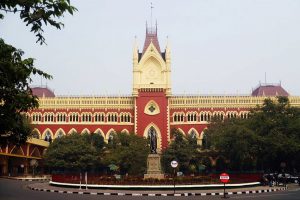Calcutta High Court: The Bench of Arindam Sinha, J. disposed of a petition by awarding 20 compensatory marks to the petitioner for NEET-UG, 2018 in lieu of wrong translation of questions in the test paper.
Petitioner in the present case is a candidate who had taken the National Eligibility cum Entrance Test, Under Graduate 2018 (NEET-UG, 2018). The present petition was filed for seeking compensatory marks by reason of errors in the translation of questions in the test paper that he took in Bengali.
Mr Subir Sanyal, Advocate appearing on behalf of the petitioner placed reliance on the decision of the Supreme Court in Disha Panchal v. Union of India, 2018 SCC OnLine SC 603, he submitted that “Supreme Court had applied a formula by which 9.90 compensatory marks were added by reason of computers in the online test being dysfunctional and consequences thereby”. Further, he stated that through an interim order he had kept one seat vacant in a government college for his client and therefore he seeks compensatory marks in respect of allocation of the seat vacant.
Mr U.S. Menon, learned advocate on behalf of CBSE had submitted that, a similar point of challenge was simultaneously under consideration before the Supreme Court and hence hearing of this petition stood adjourned. Further, he relied on CBSE v. T.K. Rangarajan, 2018 SCC OnLine SC 2526; and stated that “Apex Court did not uphold the impugned judgment of Madras High Court, by which compensatory marks were awarded on all questions erroneously translated to Tamil, to students who took the test in that language. Hence Supreme Court said no to award of compensatory marks”.
Thus, the High Court ascertained the facts, that the test paper contained 180 questions. Time given for attempting answers to the questions was 180 minutes, petitioner had attempted 179. Aggregate of questions attempted by petitioner is 148, also seven questions contained errors of translation as urged the petitioner but Court found 5.
Therefore, Court inferred that because of errors in translation petitioner should be awarded marks for those questions in 5 questions that he attempted and got wrong. As it appears that petitioner had read all the questions and answered those that he could. “He gave wrong answers to erroneously translated questions. Denying him marks on contention he ought to have compared with the questions set in English would be unjust.” Further, petitioner was directed to be awarded 20 marks in addition to his tally of marks and State directed to ascertain petitioner’s rank on his increased marks tally. [Washim Akram Hossain v. Union of India, 2018 SCC OnLine Cal 9060, dated 20-12-2018]

